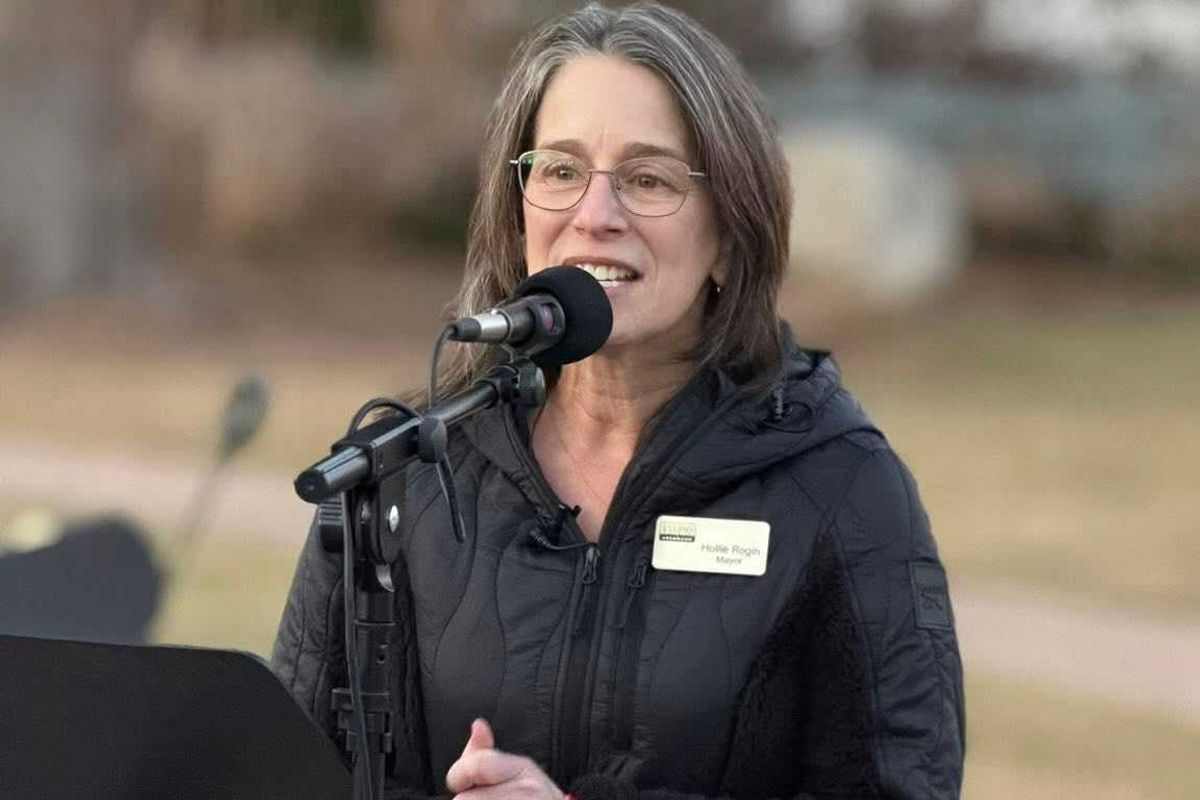Gen X women were asked how they reinvented their lives in middle age. Here are the 7 best responses.
"Never in my wildest punk rock dreams did I think this would be something I'd want, much less do."
A woman takes a photo. A woman walks a dog.
It's never too late to start over, even as one enters their second and, dare we say, "third" acts of life. If something can be dreamed, it quite often can be achieved no matter how many obstacles and circumstances stand in the way. If nothing else, it certainly doesn't hurt to try.
A user on Threads named Kari Bliss (@kari.bliss) posted, "Please show me the Gen X women who hit their 40s and 50s and decided to re-invent everything. Bonus points if you have a dog, a career, a hobby you take too seriously, or opinions about wellness."
In just a couple of days, there were over a thousand likes on this post and nearly 700 comments. Gen X women were ready to share and many of their stories were beautifully hopeful. Of course, the idea of positive reinvention is unique for everyone, but just the mere fact that so many came forward to relay their inspiration was a win. So much so that the OP made a separate post to thank everyone. "The honesty, the pivots, the late starts, the second chapters… it was a gift to read. I’m really honored people showed up with their stories."

Anna Mullins (@a_mullinsphotography) became a photographer. "Turned 55 and decided to fill my shoes with being a black and white photographer. A longing since I was a teenager. I’m 60 now and it was the best decision I’ve ever made. My work feeds my soul like nothing ever has. I’m working on a series called The Menopause Effect. Interviews and photography of Appalachian women who want to tell their stories. It’s been incredible."
Some people have used roaring into a new life to effect change in terms of volunteering. "Never in a million years did I think I would move to Ukraine at 50 to spend my spare time delivering trucks to front-line units. But here I am." ~ @wolfpartyofone
Hollie Rogain (@hrogin), along those lines, wanted to make a difference more locally. "Decided to run for local office in 2020. Became a mayor in 2022. Never in my wildest punk rock dreams did I think this would be something I’d want, much less do. Also, dogs."

Yet another, (@wren.artcher) on the older end of Gen X, seems to feel super seen by the question. "I think the algo (algorithm) called me to your post. Older Gen X-er here who some might say that I reinvented myself. I decided to change from a boy into a girl. That's pretty much changed everything. Oh... and I have a dog in my life. She's pretty awesome."
This Threader simply began appreciating themselves: "56th year just began… finally started living for myself unapologetically messy and magnificent. Terrified about the future but ready to conquer. Choosing myself with conviction."
One Gen X had a calling from the art world. Sandra Ebejer (@sandra_ebejer_author) writes, "I’m 50. Just started painting last year. On a whim, I submitted one of my paintings to an art gallery and last week I got to see it hanging on their walls. (No dog, but I do have a cat who follows me around like he’s a dog…)"

Alison Corey (@fearlessforfiction) went from teaching kindergarten to writing novels, both extremely admirable careers. "Yep, that’s me! I’m 46. I was a kindergarten teacher for 15 years, then left my job after I started a blog. Now my blog is sold and I’m writing my first novel. Not sure where it’s all going to go but I get to write every day, and it’s such a joy! I love my pup, and taught myself to crochet this year."
And another (@devaney_camburn) is Madrid-bound! "I’m moving abroad in about 10 weeks. Sold my house and belongings and leaving my 20-year career. I’m anxious and scared and nervous and overwhelmed but I also know I got this."

